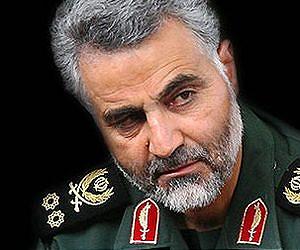CAIRO: As the daily fast of Ramadan ends, TV bursts into life in the corner of living rooms, shops, restaurants, and cafes, heaving with a mix of comedy, drama, and history.
Besides fasting, praying, and feasting, Ramadan is also known to be the prime season for television serials, programs and commercials. The sights and sounds of the television have become essential elements of the holy month.
Each Ramadan, heavyweight actors, directors, screenwriters, and producers vie into the annual marathon of soaps, in an attempt to produce the most addictive television drama.
This year, more than 50 television serials were produced especially for Ramadan. Around 21 made it to the small screen this month, starring veterans Omar El-Sherif and Lubna Abdel-Aziz in their first TV serial ever.
“This Ramadan’s TV feast is much bigger than last year’s, said Yasser Abou El Kheir, marketing manager of the production house Arascope. “Generally speaking, the quality of serials also improved with better plots and less stretching [the number of episodes], unlike previous years.
So far, the season’s hottest serials are “El Daly starring Nour El Sherif, “Qadeyat Ra’i A’am (A Public Opinion Case) starring Youssra, “Sultan El-Gharam (Sultan of Passion) starring Khaled Saleh, and “King Farouk starring emerging Syrian actor Taim Hassan.
“‘King Farouk’ is undoubtedly this year’s heaviest TV production, in terms of expenses spent on locations, settings, wardrobe, and so on, he said referring to the hefty price tag that came after producers were declined rights to shoot in real locations such as Abdeen Palace and Kobba Palace.
Historical serials are known to come at a huge production budget which is probably why King Farouk’s production house resorted to casting quite a novice actor for the star role. Production of that particular serial is known to have cost an extravagant sum of LE 12 million, with the leading star receiving around LE 1.5 million.
On average, production of a TV serial costs between LE 5-12 million, depending mainly on the actors’ paychecks. Superstars cash in some LE 3-4 million per serial, which is why producers resort to casting only one superstar per serial.
“The one-star serial has been going on for five to six years now, as a result of stars’ exaggerated pay. Most producers cannot afford to cast more than one star in a serial, Abou El Kheir explained. “Besides, some superstars want to hold the serial alone and solely attach their names to it.
He added that satellite channels were another driving force behind the one-star serial, as they purchase rights-to-air depending on mega stars and not necessarily content.
“Some superstars are enough to make the show on their own, he said. “Stars like Youssra, Elham Shahine, Laila Elwy, Nour El Sherif, and Yehia El Fakharani have now become a traditional Ramadan TV staple.
One way producers compensate for the heavy superstar commission is by licensing serials out to satellite stations that are keen to hold exclusive first-run and second-run rights.
Exclusive rights to air a TV serial during Ramadan, said Abou El Kheir, cover approximately three quarters of production costs, with Dubai TV, MBC, LBC, Al-Rai, Abu Dhabi, and Future TV competing to be the first in line.
“This Ramadan, however, exclusive rights have lost their punch because they cost a lot to purchase. That is why producers came up with something called simultaneous-run rights, whereby two stations air the serial, rather than one, he pointed out. “Such a deal translates into more money for producers and less costs for stations.
Amid fierce competition springing from Syrian and Gulf serials, some claim that Egyptian drama has had its day.
“Quality is going down in Egyptian production. Stars go over the top with their pay, and producers gratuitously increase the number of episodes to increase their profit, explained Abou El Kheir. “Still, Egyptian stars and the Egyptian dialect have their own stature in the Arab TV landscape.
Egyptian-made drama, however, has been losing ground to Arab stations, which have begun producing Egyptian series. The most evident stations are Dubai TV – with its production of “El-Massrawiya (The Egyptians) starring Hisham Selim and MBC’s “King Farouk along with another Saudi production house.
“If Egypt does not begin improving the quality of its serials, Arab TV stations will produce serials with Egyptian stars and then name their own prices and might even hold these serials to exclusive rights, keeping Egyptian dramas from being screened on Egypt’s own broadcast channels, he warned.

